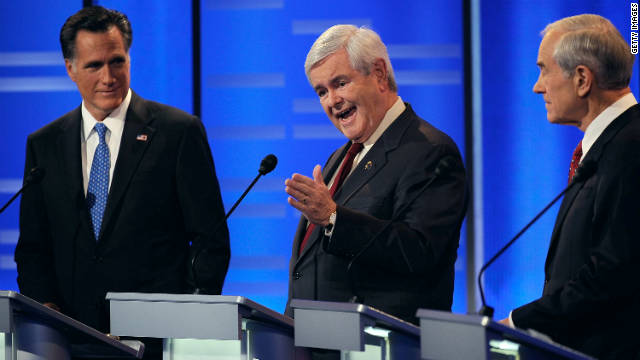Where Was the GOP's Middle Class Agenda?

Saturday night's debate provided a good example of how current GOP orthodoxy thwarts presidential candidates from talking seriously about the economic problems of the American middle class.
Mitt Romney wants to offer a middle-class economic agenda. (Or anyway, his consultants have decided he needs to offer a middle-class economic agenda. Motives don't matter for our purposes here.)
That agenda reduces itself to one point: elimination of taxes on capital gains, interest and dividends for Americans earning less than $200,000 a year.
How much benefit will this plan offer middle-income people? Precious little. Americans earning less than $200,000 (and by the way, at $200,000 individual income, we are rising well above the economic middle) do not receive many returns on invested capital. To the extent that under-$200,000s do receive capital income, it's already protected from tax inside retirement accounts.
Retirees may benefit somewhat more. Some retirees may have accumulated significant assets during their working lives, and are now spending those assets down. For that population, the Romney plan will prove a windfall. But that must be a very small group of people - and a group that most Americans would regard as affluent, not middle class. It's worth remembering that at current interest rates, it takes more than $10 million in government bonds to throw off $200,000 in interest income. It seems an ineffective means of aiding the troubled middle to allow a $10 million bondholder to receive up to $200,000 of interest tax-free.
How did Romney arrive at this unprepossessing result?
In large part, because he was trapped by the structure of Republicans taboos.
In my CNN column posting later this AM, I outline four things that really might make a difference to the middle class:
* health care cost containment
* college cost containment
* a push back against Chinese currency manipulation
* reduction in payroll taxes to be recouped by taxes on consumption or carbon pollution, preferably the latter.
It's not a perfect or complete program, and others may have better or additional ideas, but at least it's a program more relevant to middle-class concerns than Romney's capital income plan. Yet we see that today's GOP dislikes payroll tax cuts. It champions an export-hampering "strong dollar." If an insurance mandate is deemed unconstitutional, it's hard to see how else government can act to control insurance costs unless the US adopts all-out single payer, which of course would be even more unacceptable to most REpublicans.
And so on.
With the result that we're backed into a strategic position that amounts to this:
"Republicans want to help the middle class, but the only policy tool allowed is tax cuts - with the tax cut that weighs heaviest on middle-class people, the payroll tax, off limits."
No wonder then that the policy produced is feeble. It's a wonder that any policy can be produced at all.

